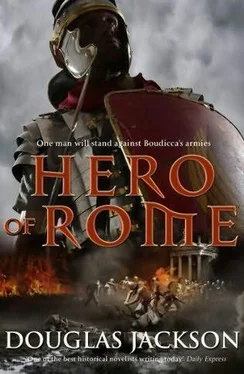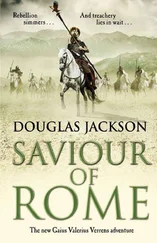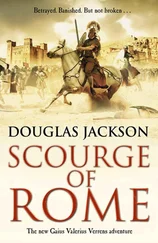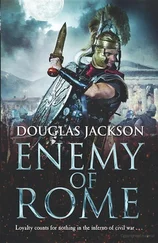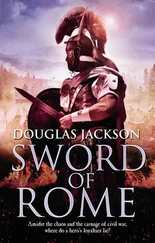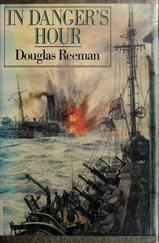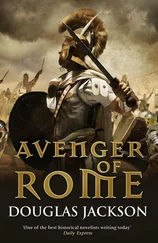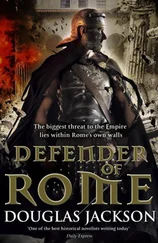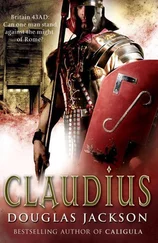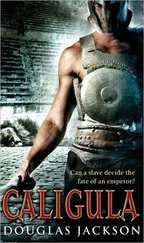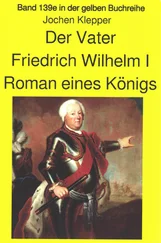Douglas Jackson - Hero of Rome
Здесь есть возможность читать онлайн «Douglas Jackson - Hero of Rome» весь текст электронной книги совершенно бесплатно (целиком полную версию без сокращений). В некоторых случаях можно слушать аудио, скачать через торрент в формате fb2 и присутствует краткое содержание. Жанр: Исторические приключения, на английском языке. Описание произведения, (предисловие) а так же отзывы посетителей доступны на портале библиотеки ЛибКат.
- Название:Hero of Rome
- Автор:
- Жанр:
- Год:неизвестен
- ISBN:нет данных
- Рейтинг книги:5 / 5. Голосов: 1
-
Избранное:Добавить в избранное
- Отзывы:
-
Ваша оценка:
- 100
- 1
- 2
- 3
- 4
- 5
Hero of Rome: краткое содержание, описание и аннотация
Предлагаем к чтению аннотацию, описание, краткое содержание или предисловие (зависит от того, что написал сам автор книги «Hero of Rome»). Если вы не нашли необходимую информацию о книге — напишите в комментариях, мы постараемся отыскать её.
Hero of Rome — читать онлайн бесплатно полную книгу (весь текст) целиком
Ниже представлен текст книги, разбитый по страницам. Система сохранения места последней прочитанной страницы, позволяет с удобством читать онлайн бесплатно книгу «Hero of Rome», без необходимости каждый раз заново искать на чём Вы остановились. Поставьте закладку, и сможете в любой момент перейти на страницу, на которой закончили чтение.
Интервал:
Закладка:
As he turned to lead the way through the breach in the British defences, he glimpsed a line of snarling moustached faces from the gap between his helmet’s cheek pieces. A shower of burning fat thrown from his left spattered his legs and he screamed a curse. Now he was inside the fortress and his men filed past him to make the line and he stopped thinking and allowed training to take over.
‘Forward.’
The curve-edged shields of the leading cohort’s first and second centuries locked in one solid defensive wall, and the weight of the attack was multiplied by the addition of two further lines. At the far right of the first line Valerius tightened his fist on the wooden grip at the rear of the shield boss, bunched his muscles in the arm straps and butted the edge against that of the man to his left. He knew every man to his rear would be holding his shield aloft to protect the front line from spears and arrows fired by the defenders. The Romans had their own spear, the pilum, a four-foot shaft of ash tipped with an arm’s length of tempered iron. But no one carried one today, because they were long, heavy and awkward and would only have slowed the attack, creating more casualties than they caused. This was a day for swords.
The momentum of the initial breakthrough had pushed the defenders back a dozen paces but now they counterattacked in a single howling mass four or five hundred strong. Valerius flinched as an arrow nicked his helmet an inch above his right eye and he braced himself for the impact of the charge, his eyes searching the barbarian ranks for the man who wanted to kill him. There was always one: the single individual who hungered for your blood more than any other; who saw in your face everything he hated most in this world. It took a moment, because his eye naturally fell upon the British champions, the big men made even taller by hair lime-starched into spikes and horns who were the pick of their tribe and carried long iron swords or broad-bladed ash spears. They fought bare-chested to prove their courage and decorated their skin with blue tattoos that told the story of their heritage and their bravery in battle.
But the man who wished to kill him was no champion. Short, with lank, dirty-blond hair and a slight frame from which hung a filthy, ragged shirt, he looked almost harmless in that warrior throng because he didn’t carry a sword or a spear, only a curved dagger with an edge that gleamed blue from constant union with the whetstone. But his eyes told a different story. They burned with an enmity beyond hatred: a mindless promise of violent, painful death. All this Valerius noted in the time it took his enemy to cover a single pace. He knew that the man’s lack of height could be an advantage in this kind of fight, and it made him doubly dangerous. For the battle would be fought above the belly and he would come in low, under the big shield, and that gleaming blade would seek out the Roman’s unprotected genitals or try to hamstring him. Valerius experienced a chill in his lower guts. Yes, it would be the balls. The haunted eyes told of a loss beyond bearing. A loss that could only be avenged by inflicting horror upon its perpetrators.
A mighty crash announced that the first Britons had collided with the centre of the Roman shield wall. He felt the impact shiver along the line, bringing with it a roll like thunder as hundreds of swords began hammering at the painted oak shields, as if by obliterating the Twentieth’s emblem of a charging boar they were obliterating the men themselves. Above the rim of his shield he watched his enemy come with the extreme left of the British attack. To the man’s right were warriors bigger and better armed, but still Valerius’s instinct told him this was where the true danger lay. When the burning eyes disappeared below the level of the shield he counted the heartbeats: one, he would have covered another pace; two, he was crouching, preparing to roll under the shield and stab upward, the blade seeking the big artery in the groin; three. With the strength of his shoulder behind it, Valerius smashed his shield forward and down so that the rounded iron boss struck the charging Briton above the bridge of the nose, smashing flesh to instant pulp, the impact forcing his eyeballs from their sockets and splintering skull bone deep into the brain. The blow numbed Valerius’s left arm, but as it was struck his right was already moving, a lightning flick of the gladius that ripped out his enemy’s throat in a spray of scarlet. He felt the flame of exultation explode within him as it always did when he took a life and he tried to still it because he believed the savage, atavistic joy shamed him. He would never reveal or try to explain that feeling beyond the brotherhood of the battlefield. Only those who had experienced it could understand that most elemental of human reactions to the most basic of human experiences: to survive and to kill. The inner fire flared and was gone, replaced in an instant by cold calculation. From his left, a Silurian spear sought out the weak point below his armour. He brushed it aside with the strengthened edge of the scutum and, snarling defiance, he was back in line, the shield rim hooking behind his neighbour’s.
With the breath rasping in his chest, he took time to listen, attempting to gauge the battle and noticing for the first time the throat-filling stink from the burning huts and granaries, the rubbish pits and animal dung and human excrement that lay in haphazard piles all around. The main force of the British attack had struck the middle of the Roman line, and it was here that the howls of impotent rage and screams of the maimed and dying were centred. For the moment, Valerius was happy that his legionaries could contain the enemy. Crespo could not be far away.
He heard the call he had been waiting for. ‘Cornicen!’ The trumpeter who had been hovering behind the line appeared at his shoulder. Valerius spoke to the man on his left side, shouting to be certain he was heard above the clamour of battle. ‘On me, wheel right ten at the signal.’ He gave time for the order to be passed along the wall of shields. ‘Sound the command.’ The trumpeter pursed his lips and hesitated for a second before the circular horn blasted out its message.
The manoeuvre Valerius had ordered was complicated and potentially dangerous, and he would only have asked it of men he trusted with his life. It meant the entire Roman line would pivot on his position like a door opening. Simple for the legionary two or three along from his commander who only had to move forward half a step, but not for the unfortunate soldier on the far left of the line who would have to put his shoulder to his shield and smash his way ten paces forward, aided by the power of the two men at his back, and all without losing formation. But ten paces could be the difference between defeat and victory.
Because through the gap — if he had timed it correctly — Crespo was now charging with his centuries in wedge formation. Arrowheaded human battering rams that would hammer their way through the enemy ranks, utterly destroying their cohesion, and then turn and attack them from the rear.
An increase in the intensity of the battle told him he’d been right. He stepped back and allowed the man behind him to take his place in the line. A few yards away, the ruins of a shattered roundhouse gave him a vantage point from which he could view the entire length of the British fort. Studying the smoke-wreathed hilltop, he realized that Crespo had added a refinement to his plan, or perhaps deliberately disobeyed orders. Two of his eighty-man wedges had punched all the way through to the west gate, and from there the auxiliaries of the diversionary attack were now pouring into the fort, killing as they came and not distinguishing between fighters and the women and children the legate had ordered taken captive.
Читать дальшеИнтервал:
Закладка:
Похожие книги на «Hero of Rome»
Представляем Вашему вниманию похожие книги на «Hero of Rome» списком для выбора. Мы отобрали схожую по названию и смыслу литературу в надежде предоставить читателям больше вариантов отыскать новые, интересные, ещё непрочитанные произведения.
Обсуждение, отзывы о книге «Hero of Rome» и просто собственные мнения читателей. Оставьте ваши комментарии, напишите, что Вы думаете о произведении, его смысле или главных героях. Укажите что конкретно понравилось, а что нет, и почему Вы так считаете.
